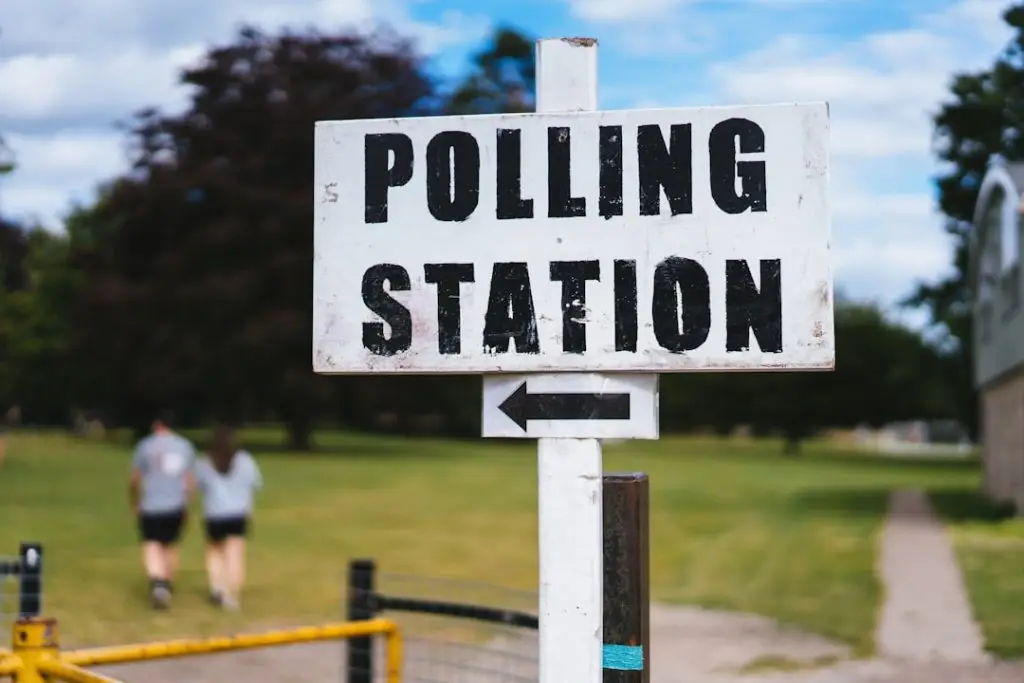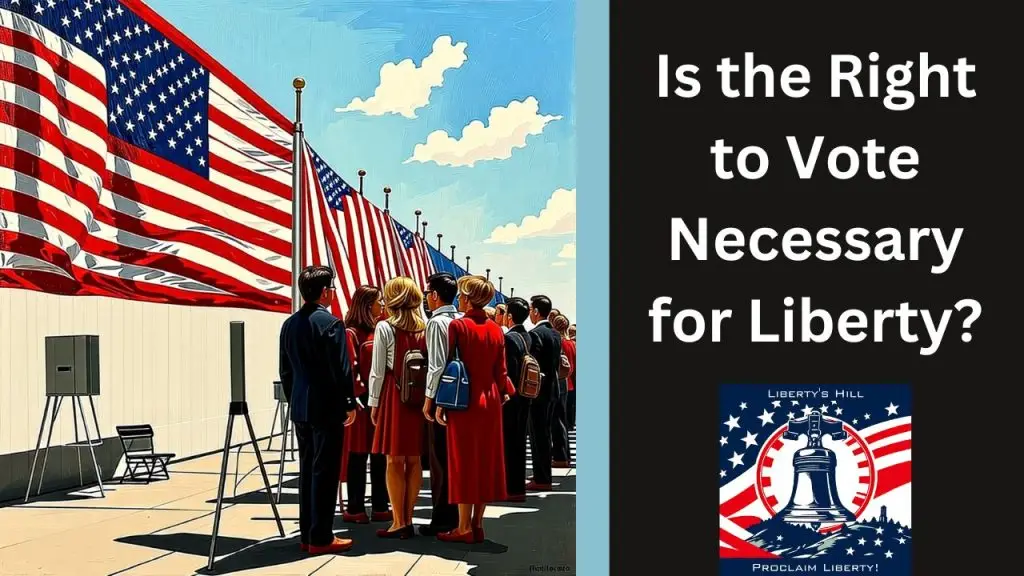Is the Right to Vote Necessary for Liberty?
In the ongoing conversation about democracy, the right to vote often takes center stage. However, it’s crucial to explore whether voting is the cornerstone of liberty or merely a means to achieve a more flourishing society. In this blog, we will delve into the intricacies of the voting process, the moral obligations of voters, and the responsibilities that accompany the right to vote.
The Purpose of Voting
The primary purpose of voting should be to elect the most capable and moral leaders. Unfortunately, this goal can sometimes become obscured. Instead of focusing on the end goal, many people mistakenly view voting as the end in itself. In reality, it is a mechanism designed to ensure that leaders who serve the public good are elected. If the system fails to accomplish this, we must critically examine the underlying issues.

Photo by Unseen Histories on Unsplash
The first step in addressing these challenges is recognizing that the aim of voting is not merely to participate in an election but to put forth leaders who genuinely care about the well-being of their constituents. This focus on the end goal is essential for fostering a healthy society.
Challenges in the Current Voting System
Today, numerous challenges obstruct the path to electing capable leaders. One significant issue is the high cost of elections. Politicians often rely on wealthy donors and special interest groups to fund their campaigns, leading to a system where those in power prioritize the interests of their financial backers over the citizens they are meant to serve.

Photo by Clark Tibbs on Unsplash
This reliance on special interests creates a troubling dynamic where elected officials feel compelled to cater to the needs of a select few rather than the broader population. Consequently, the integrity of the electoral process becomes compromised. A true democracy requires leaders who prioritize the common good over personal gain.
The Importance of Education
Another critical factor in the voting process is the level of education among the electorate. An uninformed public lacks the necessary framework to make educated decisions about candidates and policies. Without this foundation, voters may be swayed by superficial qualities or emotional appeals rather than sound reasoning.

Photo by Pang Yuhao on Unsplash
When voters are educated about the principles of liberty and human flourishing, they are more likely to elect candidates who align with these values. An educated electorate is essential for promoting candidates who prioritize the welfare of all citizens over special interest agendas.
The Role of Morality in Leadership
Morality plays a vital role in determining the quality of leadership. In today’s political landscape, it often seems that image trumps substance, and decisions are made based on emotions rather than reason. This can lead to the election of candidates who manipulate public sentiment for their gain, further undermining the principles of liberty.

Photo by Element5 Digital on Unsplash
When candidates resort to fear tactics and emotional manipulation, it raises questions about their fitness to lead. It is essential for voters to demand integrity and moral character from their leaders if we hope to create a society that values liberty and human flourishing.
Engaging in Meaningful Conversations
To address the systemic issues within our electoral process, we must engage in open and honest discussions about potential solutions. For instance, what if we required a form of education or training before citizens could vote, similar to obtaining a driver’s license? While this idea may seem extreme, it highlights the need for discussions about how to ensure that voters are adequately informed.

Photo by Priscilla Du Preez 🇨🇦 on Unsplash
Such conversations can lead to innovative solutions that empower citizens and promote a more informed electorate. The goal is to create a system that encourages civic responsibility and moral leadership, ultimately leading to better governance.
Term Limits and Accountability
There’s a common belief that term limits could help address some of the issues within our political system. However, simply limiting the time an official can serve does not necessarily ensure that moral and skilled leaders will be elected. The focus should be on the quality of the electorate rather than solely on the officials in power.

When citizens are educated and engaged, they have the power to hold their leaders accountable. A well-informed electorate can ensure that the best candidates are elected, regardless of how long they serve in office. Ultimately, the responsibility lies with the public to demand better from their leaders.
The Founding Fathers’ Perspective
The founding fathers recognized that a successful government requires a moral and educated populace. They understood that the principles of liberty could only flourish in an environment where citizens were knowledgeable about their rights and responsibilities. This commitment to education and moral development must remain a priority if we wish to uphold the values of our democracy.

Photo by Sebastian Herrmann on Unsplash
By fostering a culture that prioritizes education and morality, we can create a political landscape that encourages the election of capable leaders who genuinely care about the well-being of their constituents.
The Conclusion: Voting as a Means
In conclusion, while the right to vote is undoubtedly important, it should not be viewed as an end in itself. Voting is a means to an end—specifically, the end of electing the most moral and capable leaders. To achieve this, we must focus on educating the public, engaging in constructive discussions, and demanding integrity from our elected officials.

Photo by Phil Hearing on Unsplash
As we navigate the complexities of our electoral system, let us remember that the responsibility lies with each citizen to uphold the principles of liberty and human flourishing. The path forward requires dedication, education, and a commitment to fostering a political culture that values morality and accountability. Together, we can create a brighter future for all.
We invite you to share your thoughts in the comments section below. Your insights can contribute to a meaningful dialogue about how we can improve our electoral system and ensure that our leaders serve the good of all citizens. Don’t forget to subscribe to stay updated on our journey toward a flourishing society.


